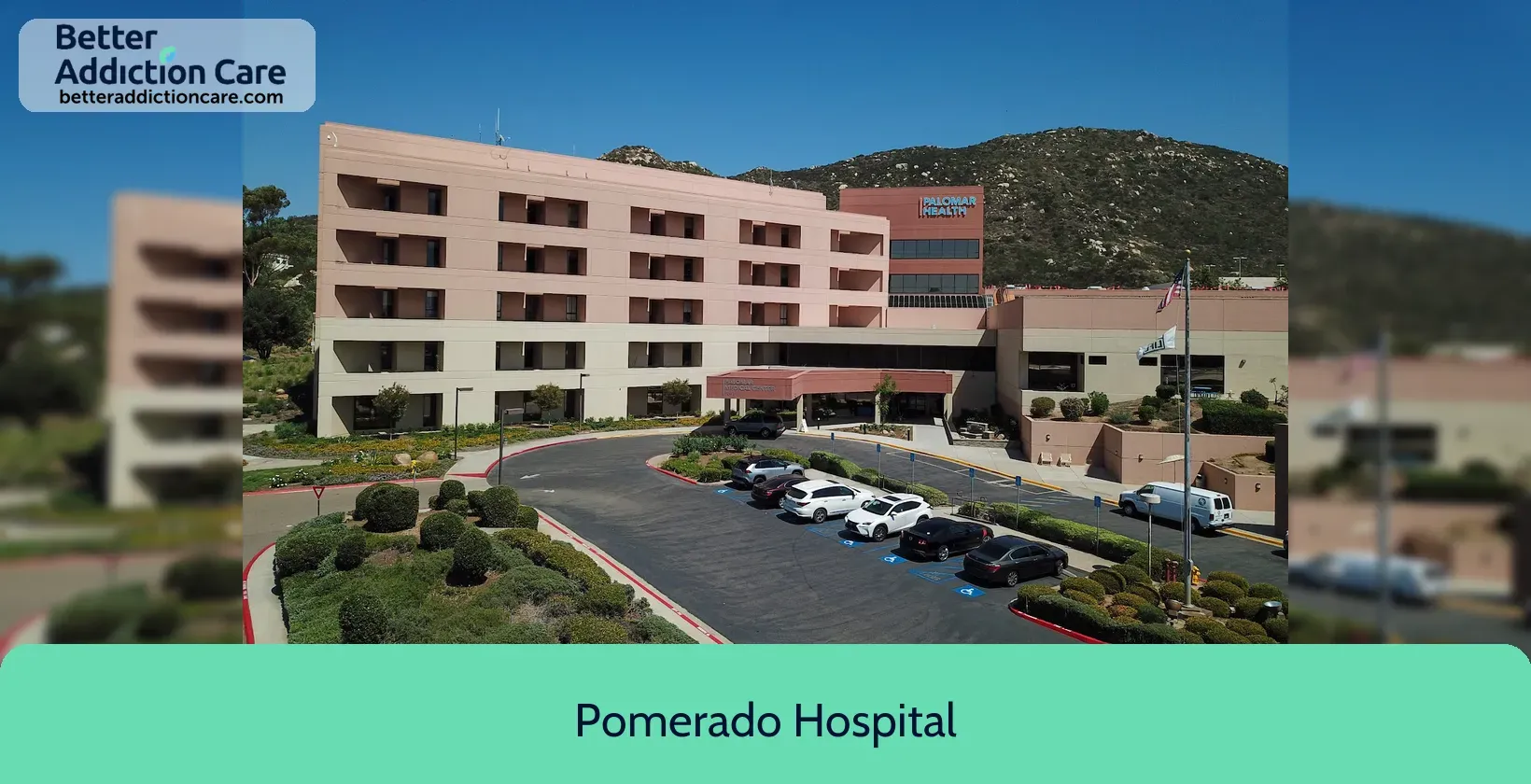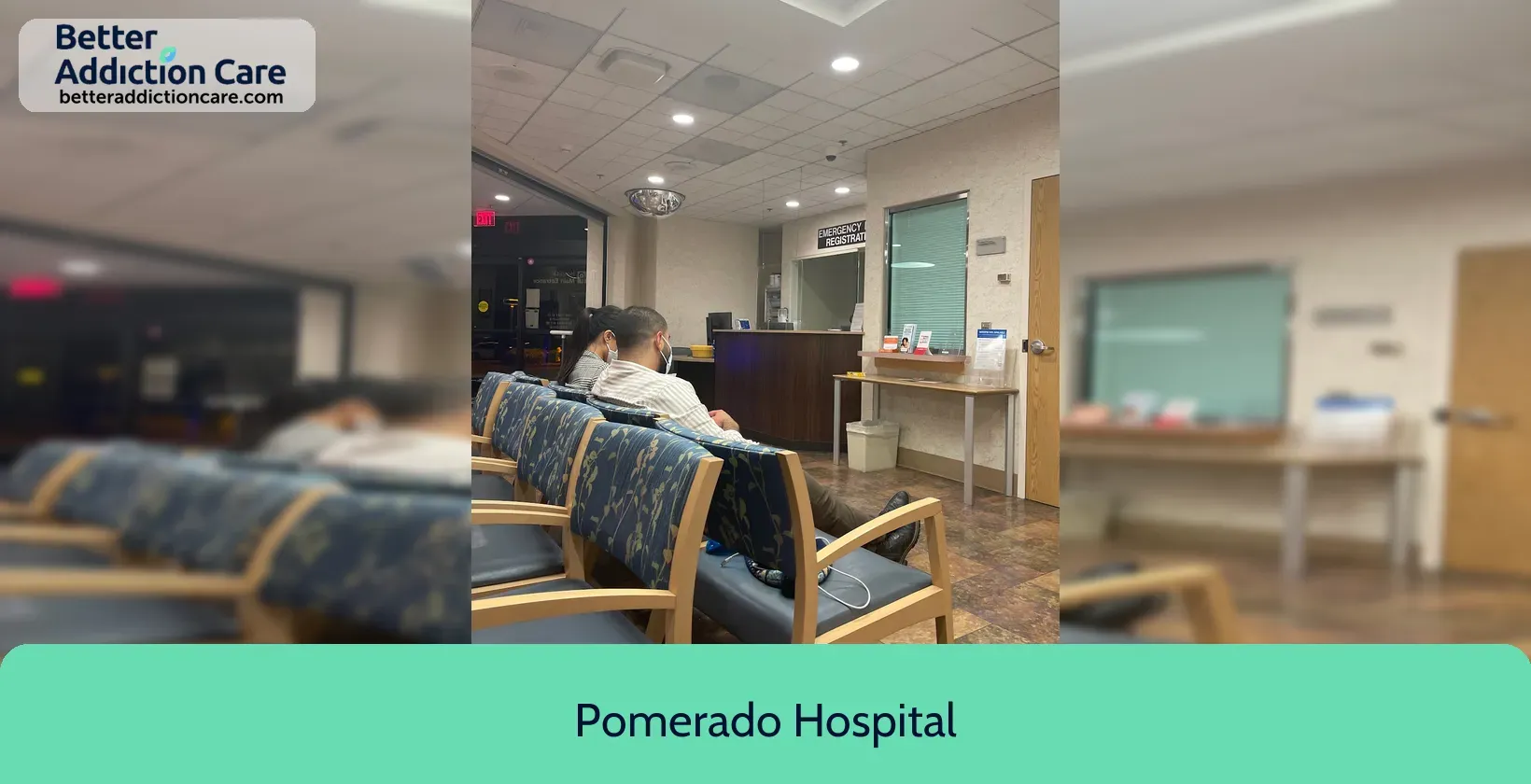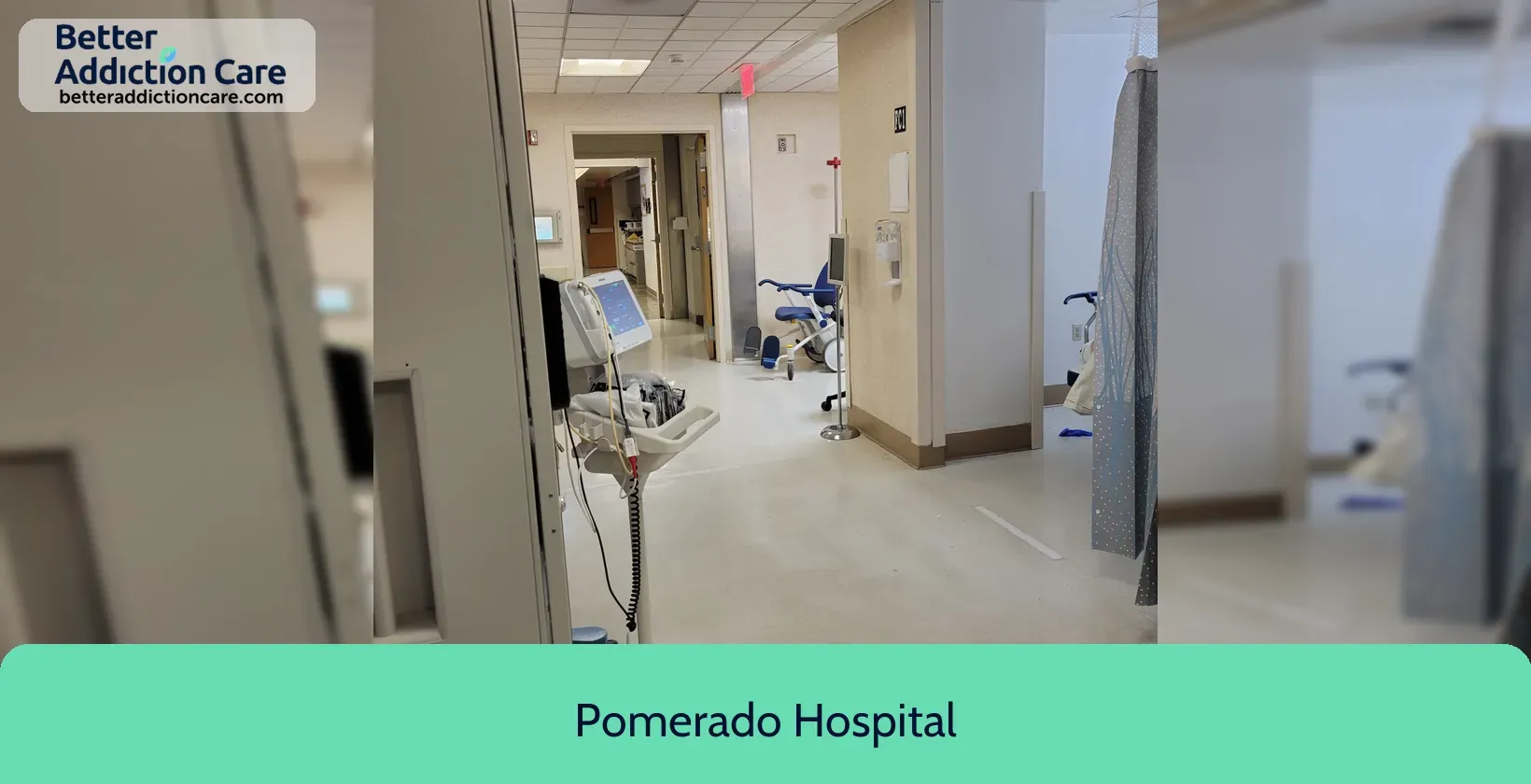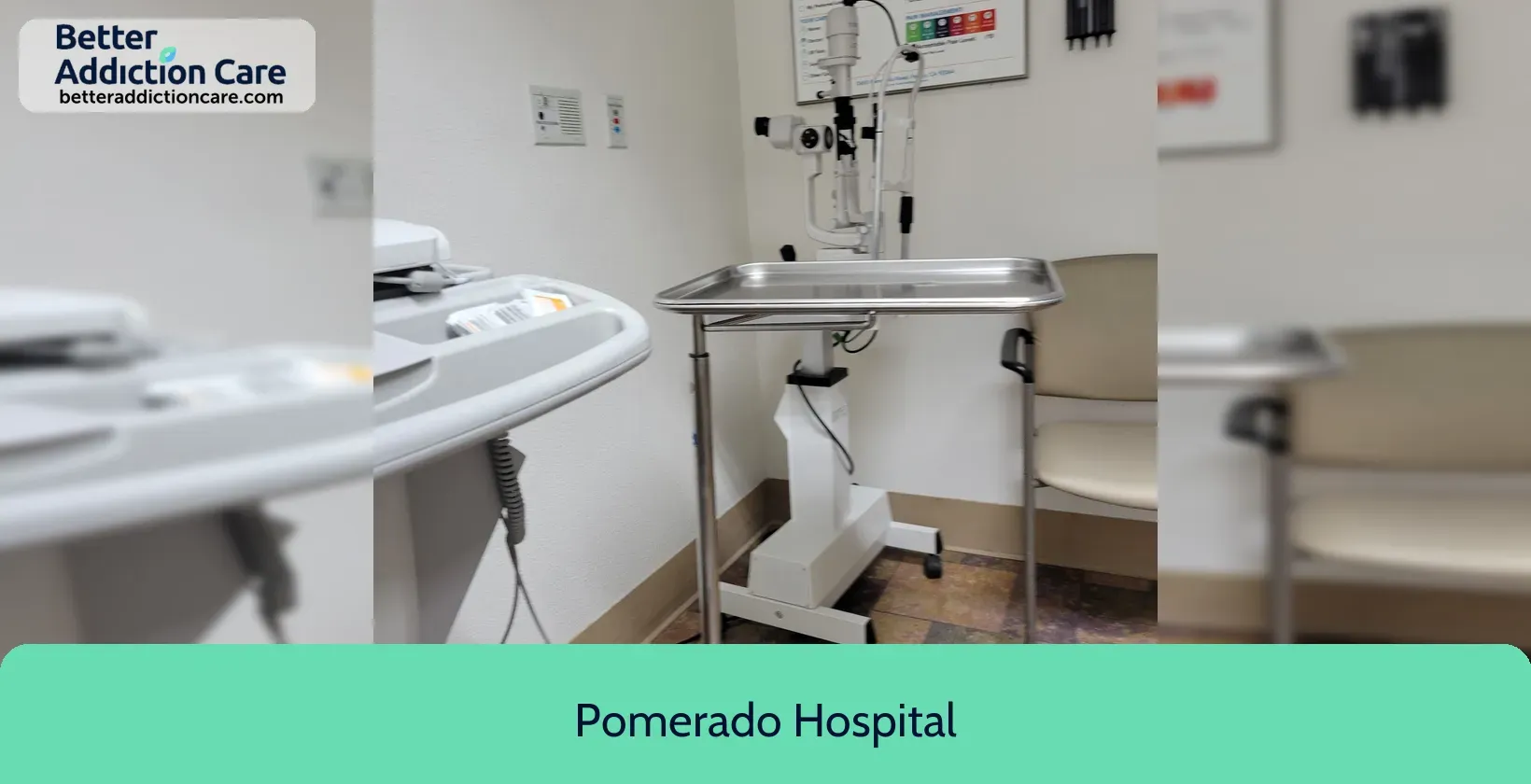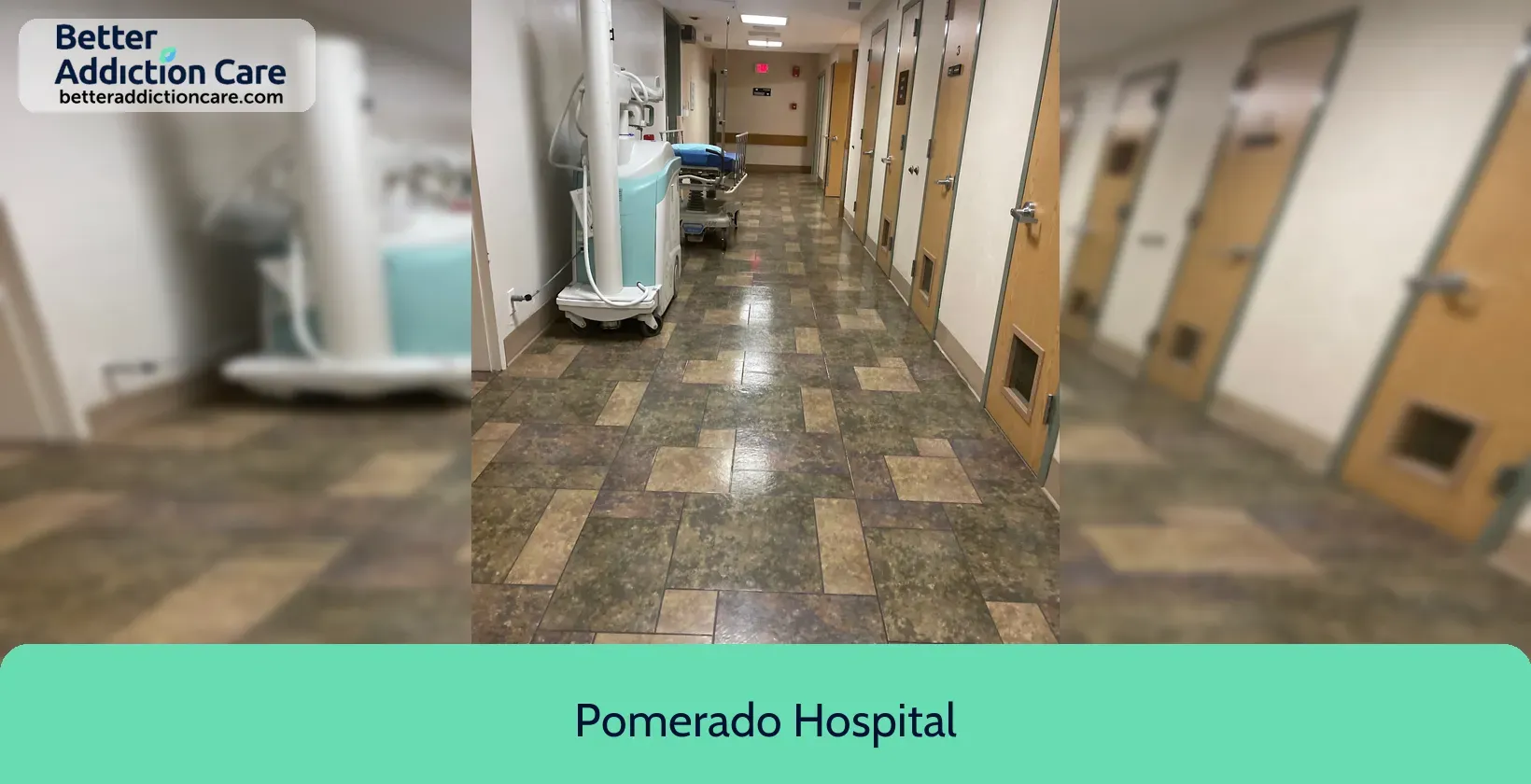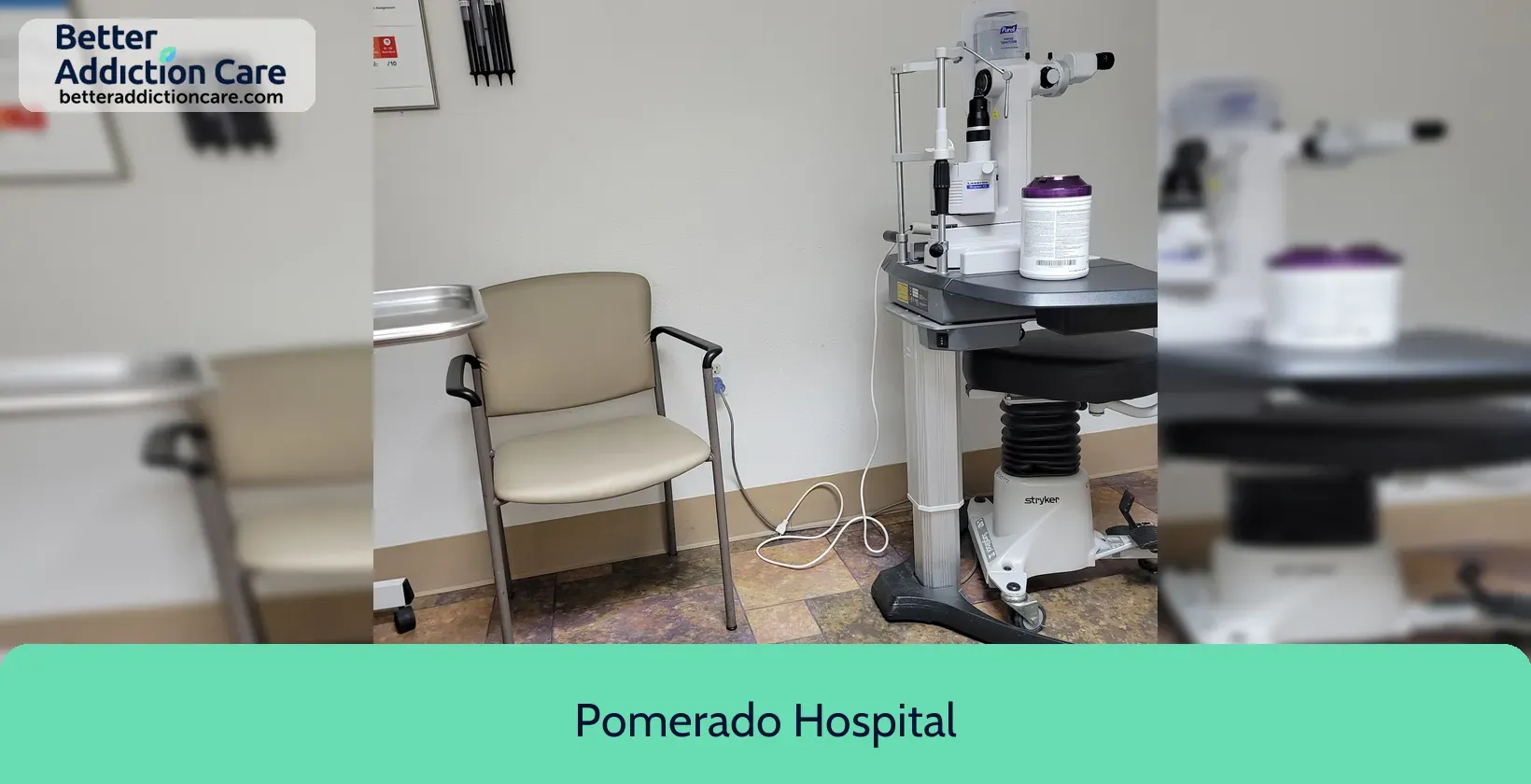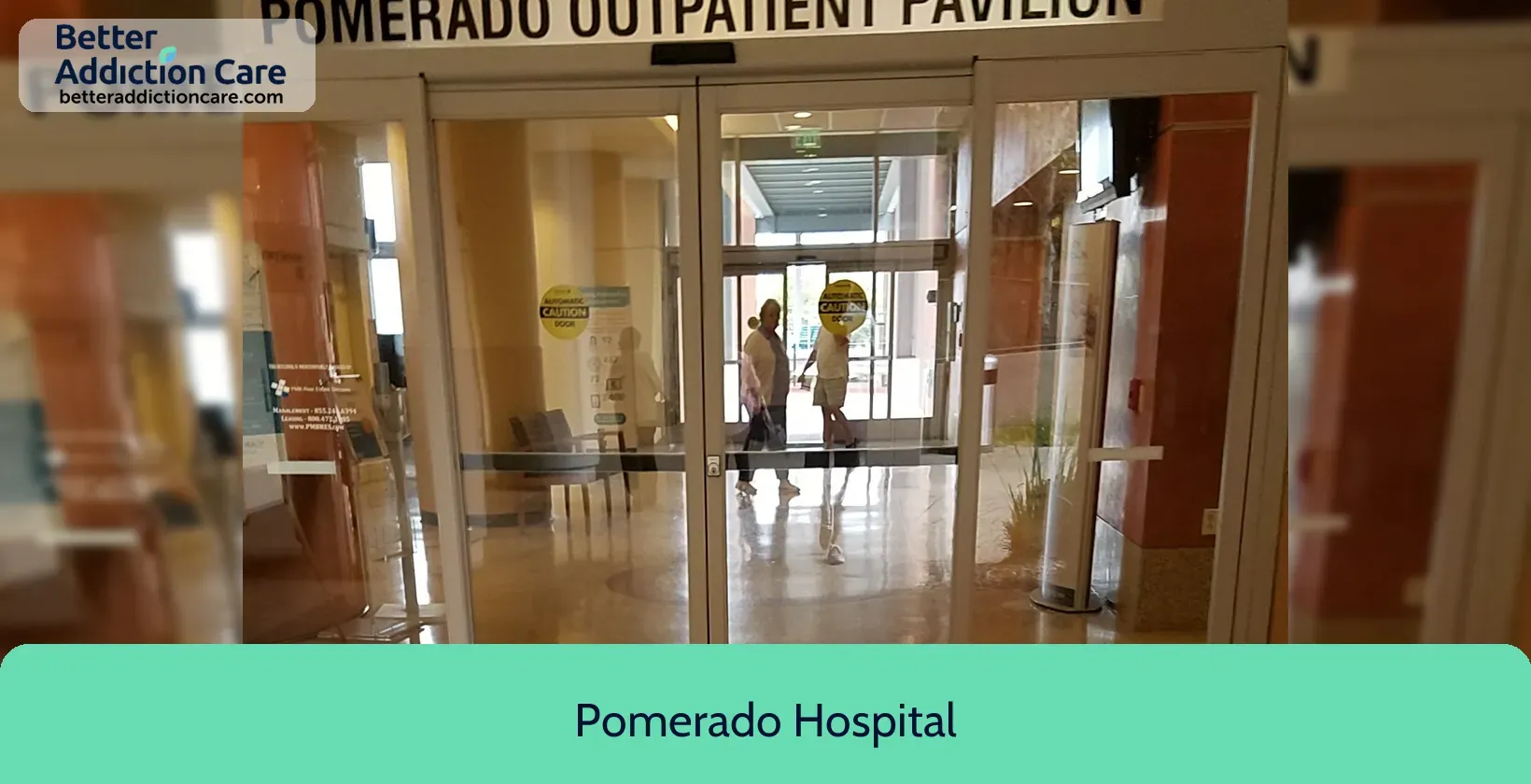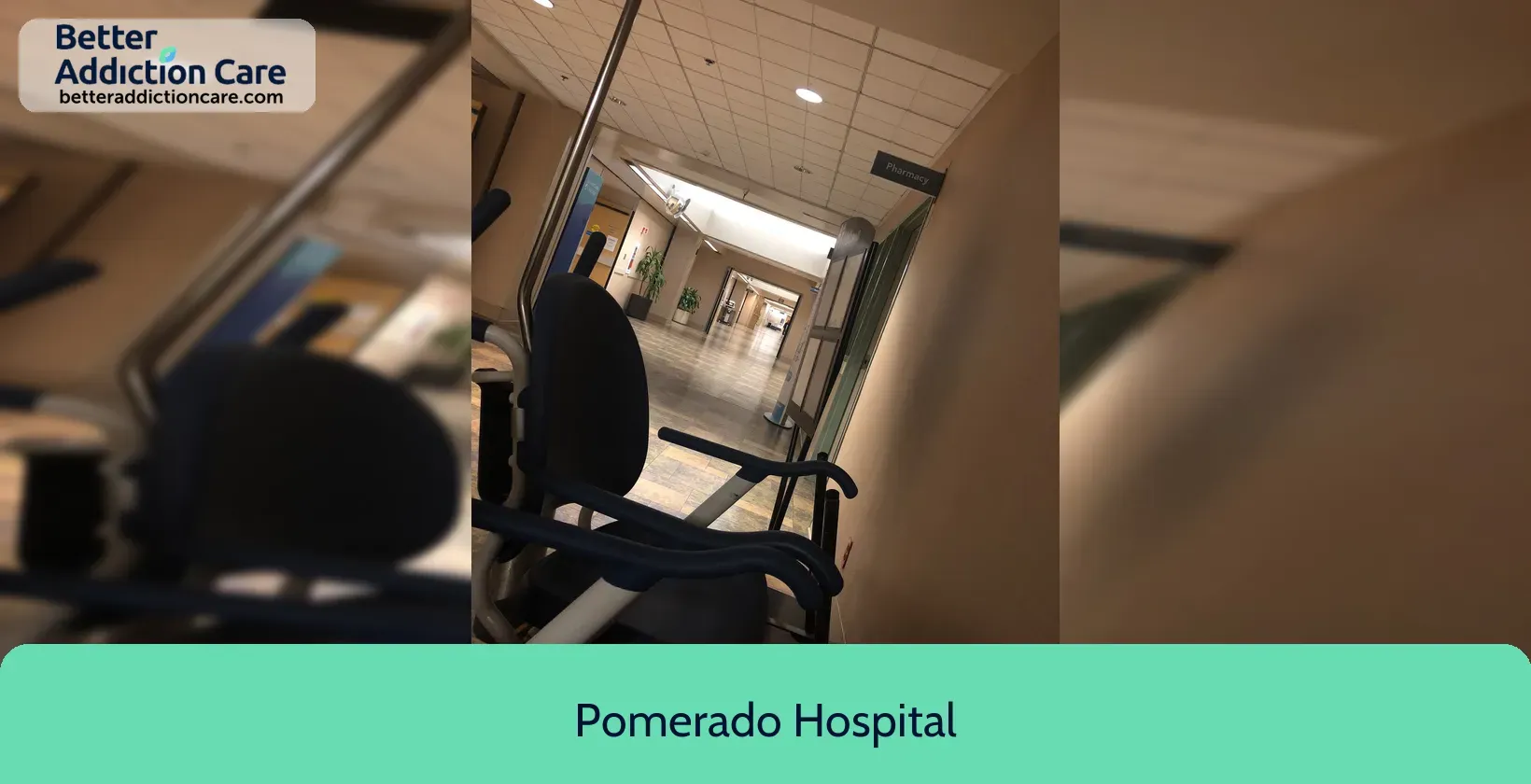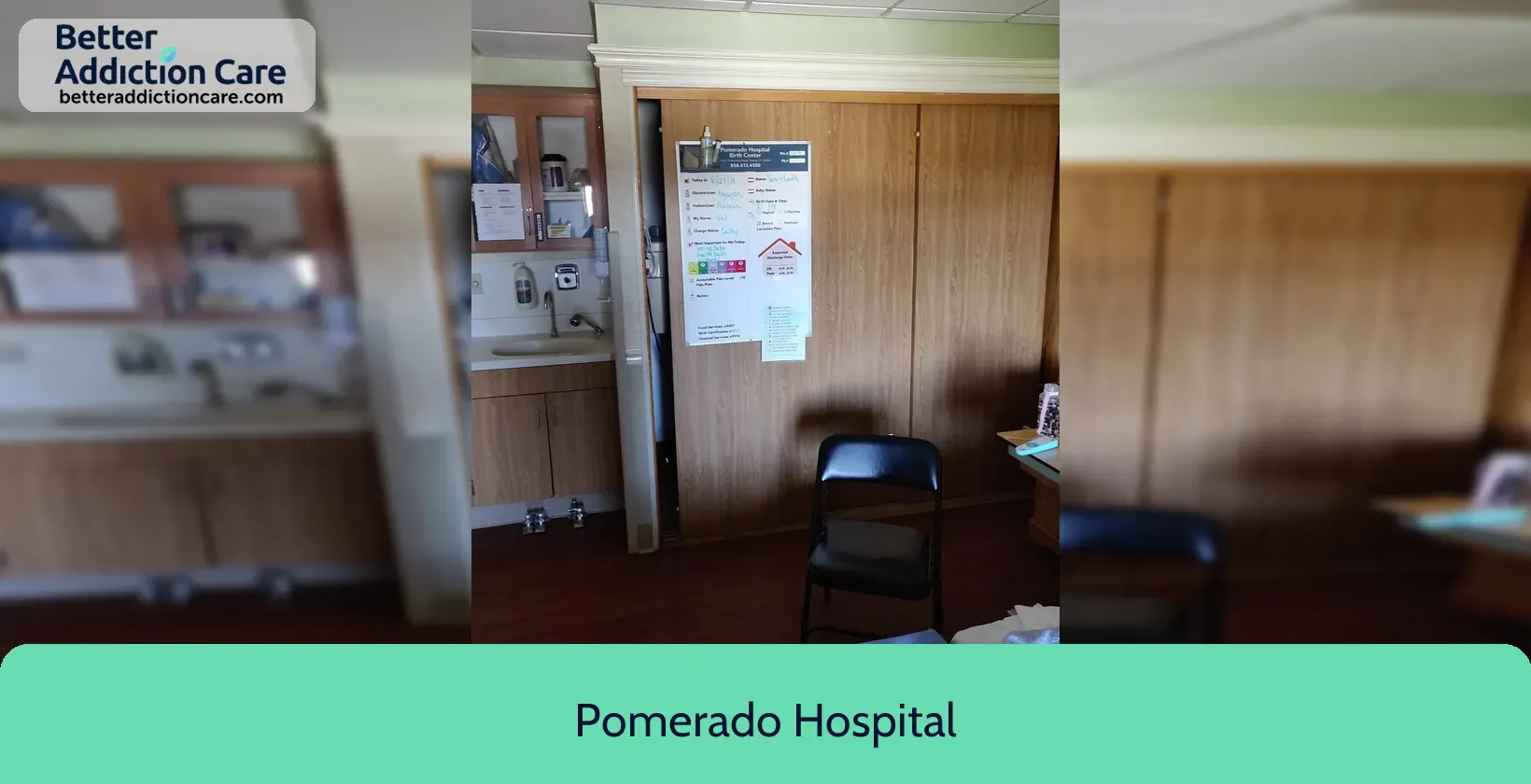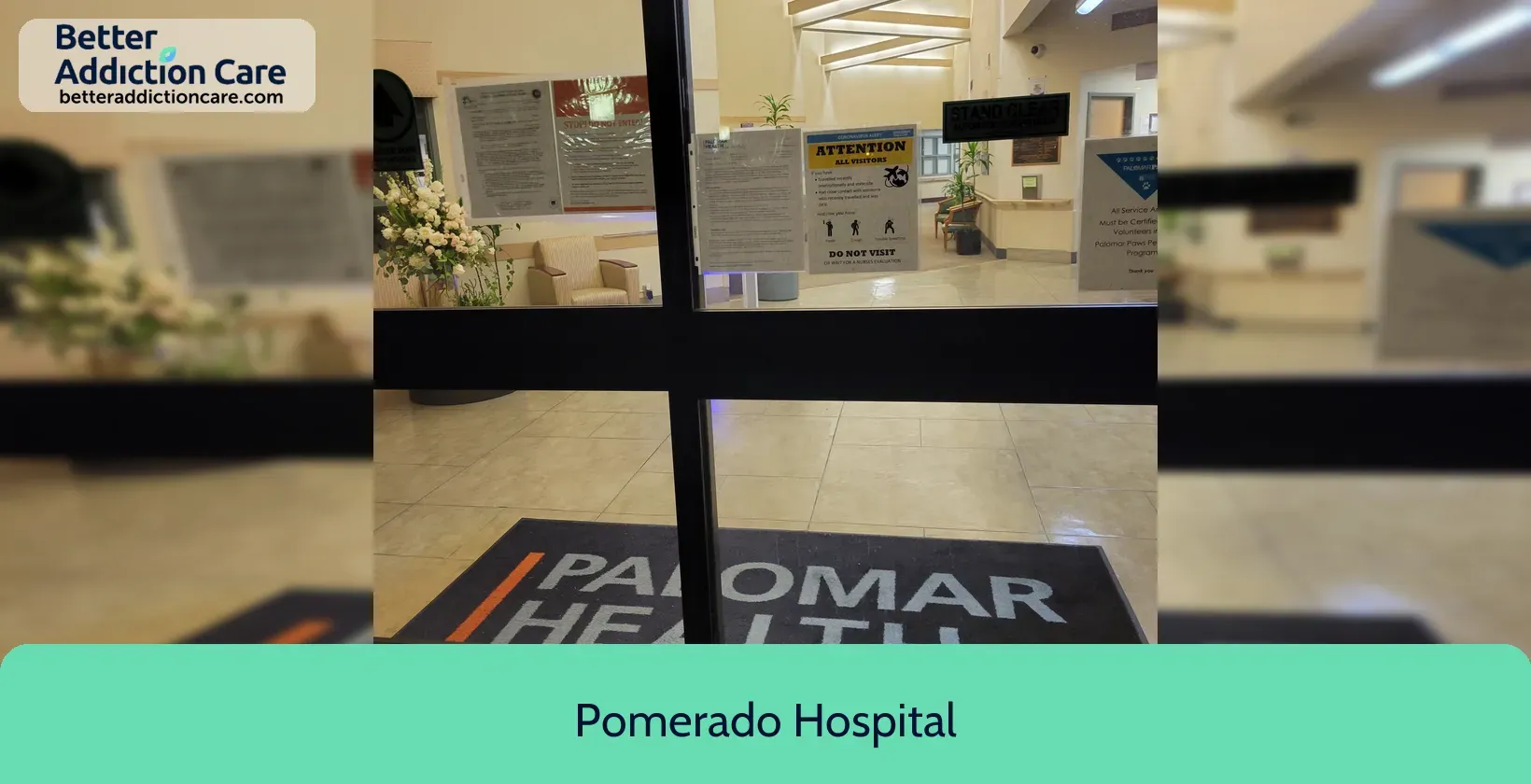Overview
Pomerado Hospital is an substance abuse treatment center that provides inpatient treatment for men and women from 18+ years of age. As part of their special programs, Pomerado Hospital To help patients achieve sobriety, Pomerado Hospital provides intake assessments. Afterward, patients receive cognitive behavioral therapy, dialectical behavior therapy, and group counseling during treatment. Pomerado Hospital is located in Poway, California, providing treatment for people in San Diego County, accepting private health insurance, cash or self-payment, and medicare.
Pomerado Hospital at a Glance
Payment Options
- Private health insurance
- Cash or self-payment
- Medicare
- Federal military insurance (e.g., TRICARE)
Assessments
- Comprehensive mental health assessment
- Comprehensive substance use assessment
Age Groups
- Adults
Operation
- State government
Highlights About Pomerado Hospital
6.59/10
With an overall rating of 6.59/10, this facility has following balanced range of services. Alcohol Rehabilitation: 8.00/10, Drug Rehab and Detox: 6.00/10, Insurance and Payments: 6.00/10, Treatment Options: 6.36/10.-
Alcohol Rehabilitation 8.00
-
Treatment Options 6.36
-
Drug Rehab and Detox 6.00
-
Insurance and Payments 6.00
Treatment At Pomerado Hospital
Treatment Conditions
- Mental health treatment
- Substance use treatment
- Co-occurring Disorders
Care Levels
- Hospital inpatient treatment
Treatment Modalities
- Cognitive Behavioral Therapy
- Dialectical Behavior Therapy
- Group counseling
- Experiential Therapy
Contact Information
Read our Most Recent Article About Drug Addiction
DISCLAIMER: The facility name, logo and brand are the property and registered trademarks of Pomerado Hospital, and are being used for identification and informational purposes only. Use of these names, logos and brands shall not imply endorsement. BetterAddictionCare.com is not affiliated with or sponsored by Pomerado Hospital.
